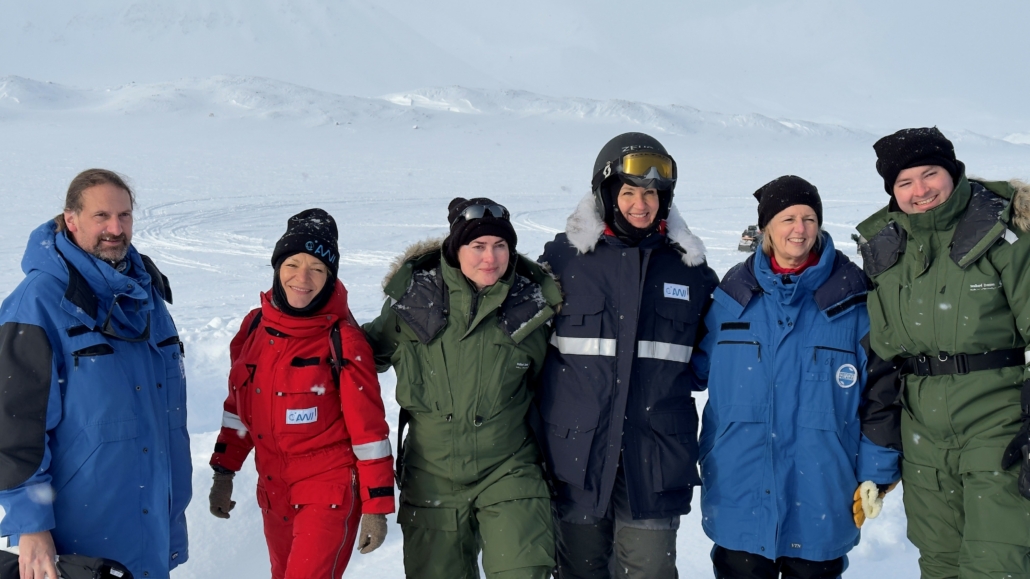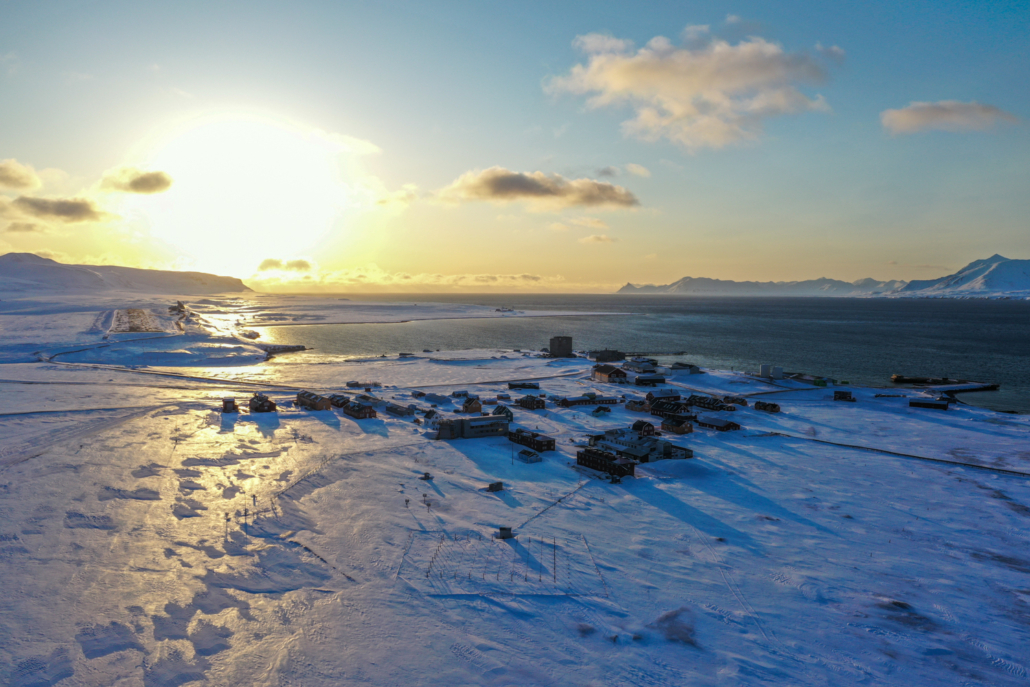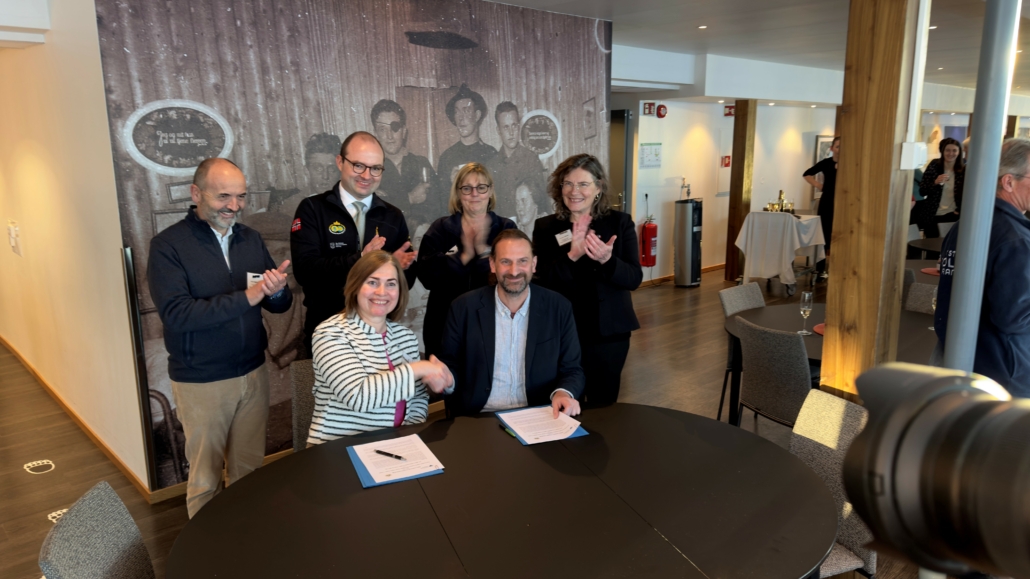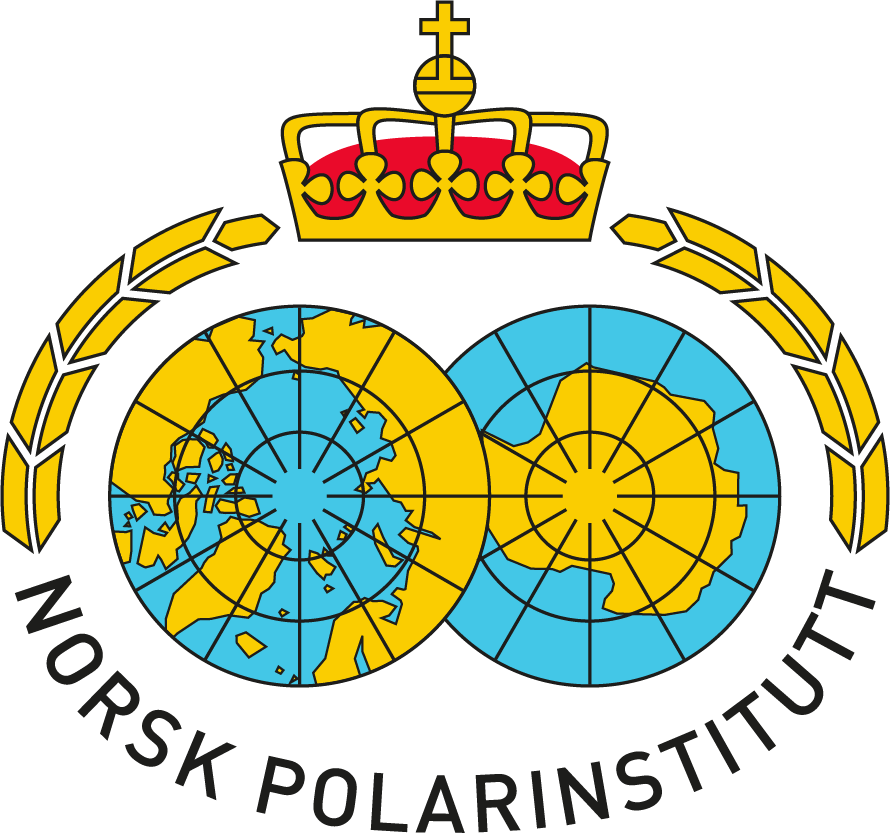A delegation of VIPs arrived in Ny-Ålesund in the Arctic archipelago of Svalbard yesterday afternoon. To explore the possibilities of increased international cooperation in the Kongsfjord area is part of the programme.

From left: Yan Ropert-Coudert (Director IPEV), Antje Boetius (Director Alfred Wegener Institute), Camilla Brekke (Director Norwegian Polar Institute), Bettina Stark-Watzinger (Minister of Research and Education Germany), Sylvie Retailleau (Minister of Research and Education France ) and Sindre Lysø (state secretary in the Ministry of Education, Science and Technology). Photo: Geir Gotaas / Norwegian Polar Institute
The Norwegian Ministry of Education and Research has invited the French and German ministers of higher education and research to Ny-Ålesund Research Station to discuss further cooperation on polar research.
– In Ny-Ålesund Research Station we already cooperate with research institutes from Germany and France. We will further strengthen our relations through this high-level visit. As part of the visit, we have signed a new Memorandum of Understanding with the French IPEV institute, said Norwegian Polar Institute Director Camilla Brekke, who is the host for the visit in Ny-Ålesund.

NY-ÅLESUND Photo: Trine Lise Sviggum Helgerud / Norsk Polarinstitutt
State Secretary Sindre Lysø (Ap) of the Ministry of Education heads the Norwegian delegation. French and German polar researchers have been active in Ny-Ålesund for decades. This time, the focus is on the future.
– Climate change is particularly visible in Svalbard and all over the Arctic. Therefore, research in the Arctic is so important to understand the challenges we are facing. Germany and France are leading European research nations, and they are highly prioritised countries for Norway to cooperate with. Like Norway, both these countries give research in the Arctic high priority. The intention of this visit is to explore how we may further develop and strengthen the cooperation between our two countries, said Sindre Lysø.
Several excursions are on the programme during the visit. Tomorrow, the visitors will take the gondola to the Zeppelin Observatory, where measurements include long-range transport of air pollutants from the top of Zeppelinfjellet mountain in Ny-Ålesund.
– Ny-Ålesund Research Station is attractive for polar researchers from all over the world. The research station has a geographical and a geopolitical position which probably partly can explain why many look to us for cooperation. We are proud to show an efficient research station where unique, world class science is being carried out, Brekke said.
The important delegation, which will return to Longyearbyen on Wednesday, is one of many international visits to Ny-Ålesund lately.
– The Norwegian Polar Institute has extensive experience in international research, but we now see that there is a general increasing interest from the international community. This high-level visit is an example of the interest, Brekke said.

French IPEV is an important partner for the Norwegian Polar Institute. Further strengthening of the collaboration marked by the signing of a new collaboration agreement during a visit from the French and Norwegian Ministry of Knowledge in Ny-Ålesund in Svalbard. Photo: Geir Gotaas / Norwegian Polar Institute





